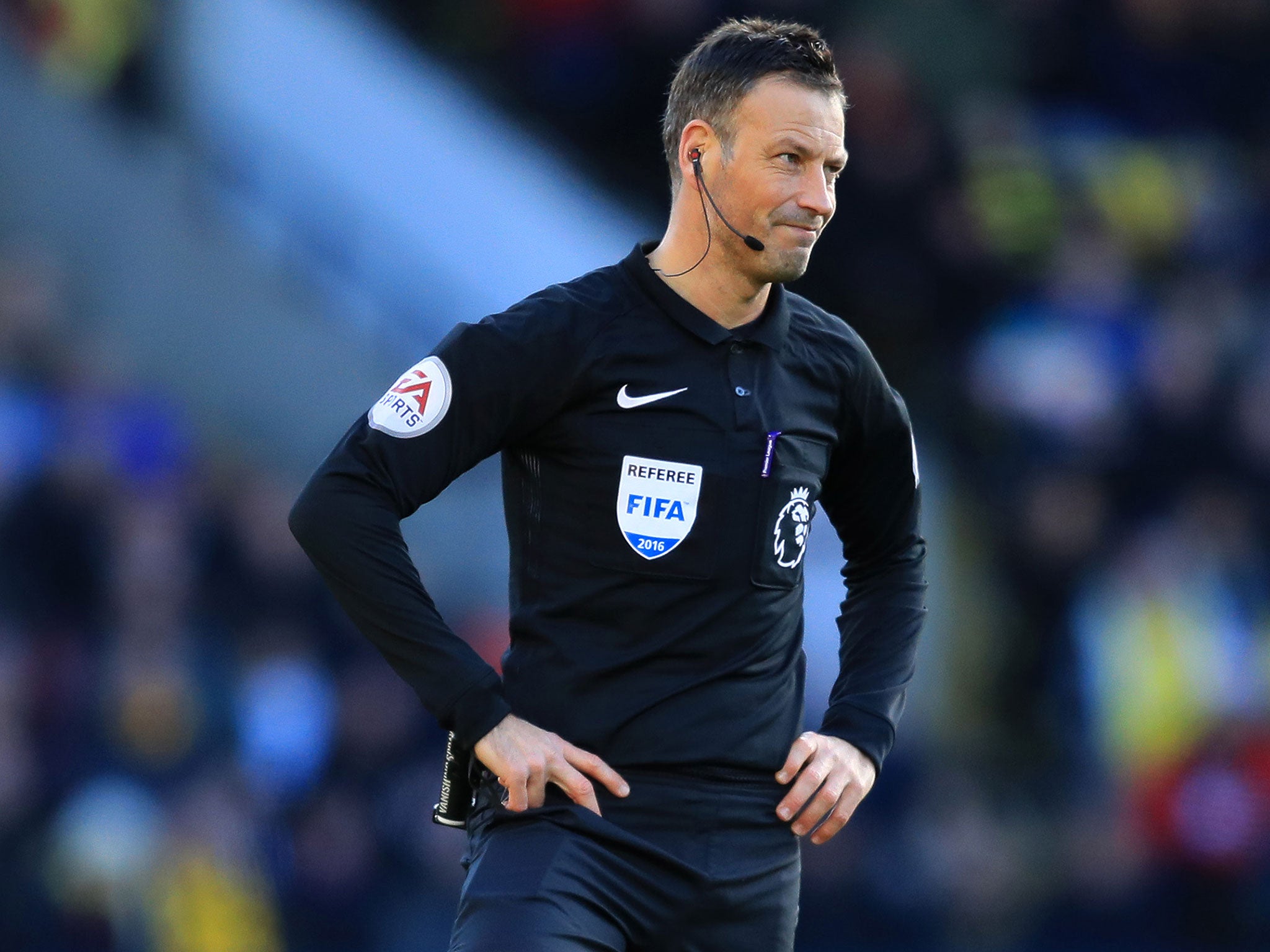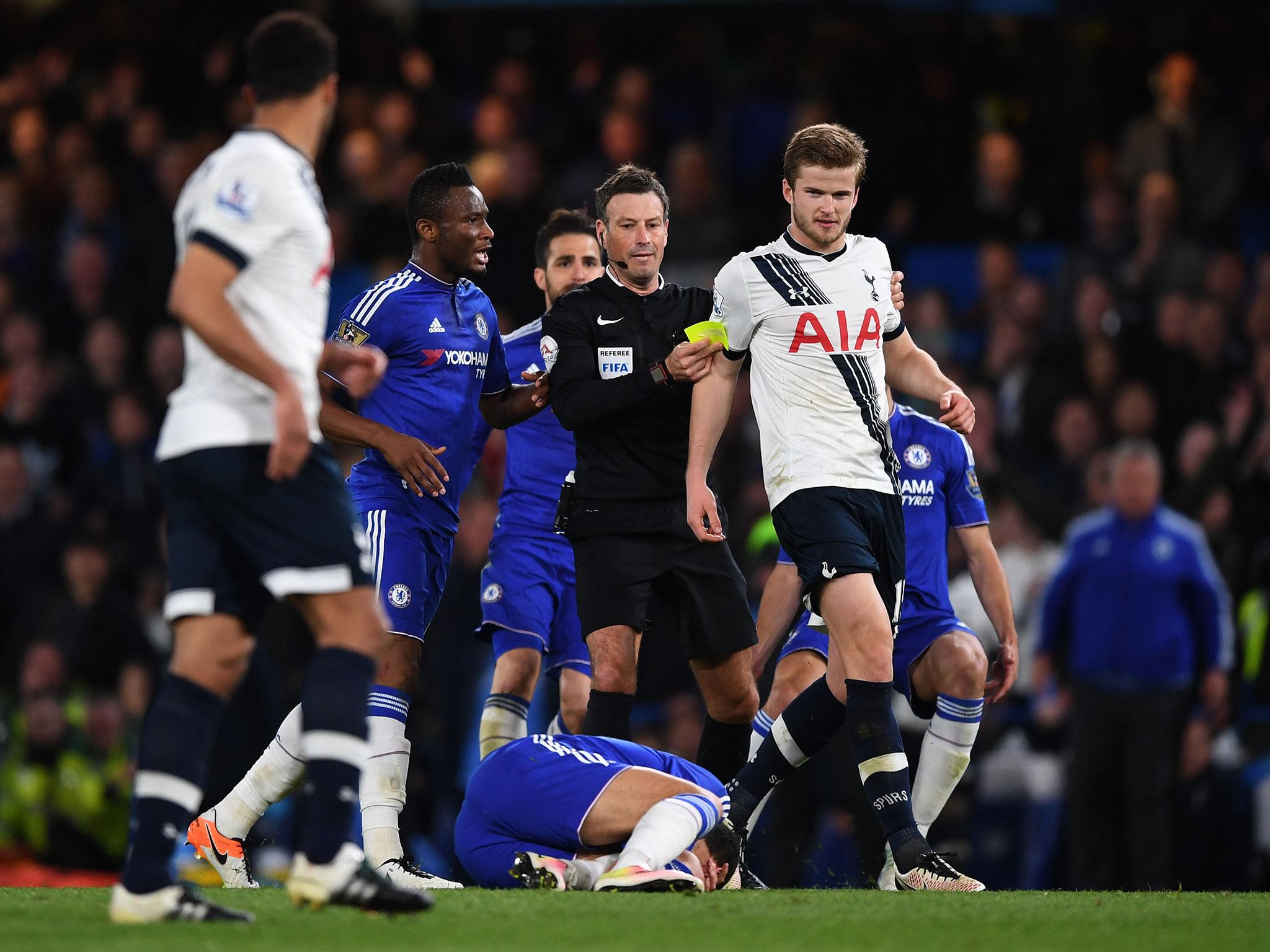Mark Clattenburg has run his mouth but to what effect and for what purpose?
Clattenburg's recent comments regarding the Chelsea vs Tottenham clash in 2016 have whipped up quite the stir. Why, though, did he feel the need to say what he did?

Your support helps us to tell the story
This election is still a dead heat, according to most polls. In a fight with such wafer-thin margins, we need reporters on the ground talking to the people Trump and Harris are courting. Your support allows us to keep sending journalists to the story.
The Independent is trusted by 27 million Americans from across the entire political spectrum every month. Unlike many other quality news outlets, we choose not to lock you out of our reporting and analysis with paywalls. But quality journalism must still be paid for.
Help us keep bring these critical stories to light. Your support makes all the difference.
If the general expectation for good refereeing is to “let the game flow”, the wonder is why Mark Clattenburg has decided to apply such an approach to his mouth.
His controversial comments in an interview with NBC’s ‘Men in Blazers’ about Tottenham Hotspur's 2-2 draw at Chelsea in May 2016 will at best merely raise eyebrows about his attitude to letting the game flow and at worst raise questions about what underlies his whole refereeing philosophy.
The connected main takeaways are that he has effectively admitted that he allowed his concern for perceptions over his own performance to influence the application of the rules, and that he is primarily there to facilitate the narrative - or, in this case, the “pure theatre” - over the correct running of the game.
There was similarly a sense that Clattenburg saw himself as a key character in this story, rather than an adjudicating official; someone part of the “theatre” rather than specifically there to be apart from it.
Many might say this admission is no surprise from a figure always seen as so vainglorious, and yet still a fundamentally good referee, but the extent of what he said is surprising - and just confusing. Why, above anything else, did he feel the need?
Referees are allowed to make mistakes, so why reveal such apparent calculation?
From certain perspectives, you can understand what he said - or what he was trying to say. It was just so badly and haphazardly phrased. He ultimately didn’t want to let a hugely consequential game be overwhelmingly settled by a flurry of red cards. That is something that all referees will admit to thinking of, but not in this way and with these apparent motivations.
He ultimately decided there might be too much risk of repercussions to enforce the rules. There was also the nature of this game and how it developed, apart from the context. It ended up devolving into one of the most violent matches of the season.

It wouldn’t have taken much for one of those very overly aggressive tackles to be slightly mistimed, and thereby potentially leave a player out for a long amount of time - and maybe the European Championships just a few weeks later?
What would the repercussions have been for Clattenburg - or “headlines”, as he himself mentioned - had one of England’s stars been put out of the tournament because the leeway he allowed, a leeway that did not feel commensurate with the course of the game he was refereeing?
This is the other side of it. If this was really a case of letting the game flow, rather than just some post-rationalisation, it did not feel like especially good refereeing on this occasion. It warranted stronger decisions to put a stop to the aggression.

Much of this echoes with the manager who sets up his tactics because he is more concerned with what a bad defeat will do for his reputation rather than what is best for a specific game and specific opposition.
There was even the apparent ego in talking how his style "certainly benefitted the game", and the very idea that the refereeing performance would have overshadowed one of football's great stories of Leicester City just winning the title.
"I didn't give them an excuse,” Clattenburg said of Spurs, “because my gameplan was: let them lose the title.” Admitting that might well have just lost him further credibility.
Join our commenting forum
Join thought-provoking conversations, follow other Independent readers and see their replies
Comments